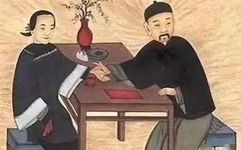Before Western medicine entered China, Traditional Chinese Medicine (TCM) was not referred to as “Traditional Chinese Medicine”; the term “Chinese” is relative to “Western”. In ancient times, there were many names for TCM, most of which originated from the deeds of famous TCM practitioners throughout history, reflecting people’s admiration for their medical skills and ethics.
1. Qi Huang
During the 26th to 22nd century BC, the Yellow Emperor (Huangdi) was the legendary leader of various tribes in the Central Plains, with the surname Ji and the title Xuanyuan. Qi Bo, a legendary physician and minister of the Yellow Emperor, is credited with the earliest existing theoretical work on TCM, the Huangdi Neijing (Yellow Emperor’s Inner Canon), which is presented as a dialogue between Huangdi and Qi Bo on medical topics in a question-and-answer format. This work is also referred to as the foundation of TCM. Later generations referred to TCM as “Qi Huang” or “Qi Huang’s Art” in honor of this legacy.
Before Western medicine was introduced to China, Chinese medical practices were known as “Qi Huang’s Art”, where “Huang” refers to the Yellow Emperor and “Qi” refers to his minister Qi Bo. It is said that the Yellow Emperor often discussed medical issues with Qi Bo and other ministers, exploring the causes, diagnoses, and treatment principles of diseases, many of which are recorded in the Huangdi Neijing. Out of respect for the Yellow Emperor and Qi Bo, the term “Qi Huang’s Art” came to represent TCM, and the Huangdi Neijing is regarded as the authoritative classic of TCM theory. Even today, practitioners of TCM frequently reference the teachings of the Huangdi Neijing.
Qi Huang vs. Qi Huang
The character “歧” (qi) primarily means divergence, fork, or difference; while “岐” (qi) mainly refers to Qishan in Shaanxi Province. Historical documents indicate that in ancient times, “岐” was only used interchangeably with “歧” in very rare cases. The “岐” in “Qi Huang” represents a person, specifically Qi Bo, who discussed medicine with the Yellow Emperor in the Huangdi Neijing. It is said that Qi Bo was from Qishan. The Neijing is the earliest existing classic in Chinese medical literature, discussing medical issues through dialogues primarily between Huangdi and Qi Bo. Thus, later generations used “Qi Huang” to refer to the Huangdi Neijing or TCM. Therefore, it is clear that the “岐” in “Qi Huang” cannot be replaced with “歧”, meaning writing it as “歧黄” is incorrect. Similarly, Qi Bo should not be written as “歧伯”.
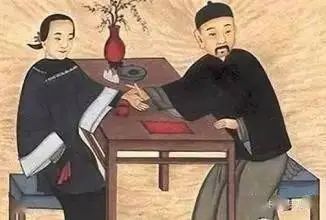
2. Saint of Medicine
The Records of Confucius states: “In matters, there is nothing he does not understand, hence he is called a saint,” meaning one who understands everything. The term “hand” refers to a person who specializes in a particular field. The title “Saint of Medicine” is a high praise for a physician’s superb medical skills.
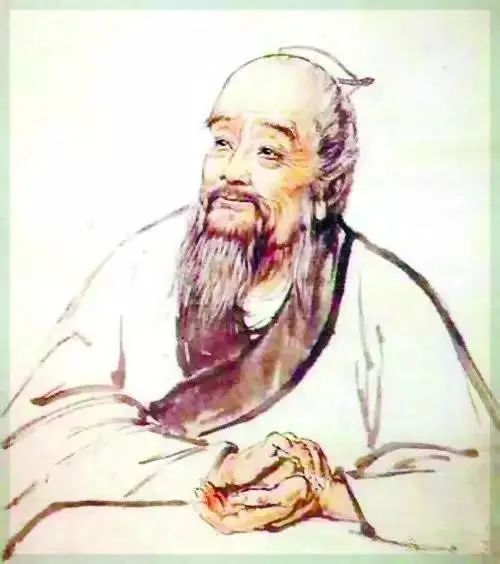
3. Bian Que and Lu Yi
The Records of the Grand Historian states: Bian Que was a person from the Bo Hai region, with the surname Qin and the name Yue. He treated Zhao Jianzi and the Crown Prince’s illnesses. The Liezi mentions a physician named Lu, who was referred to as a “divine physician”. Bian Que and Lu represent the “orthodox divine physicians”.
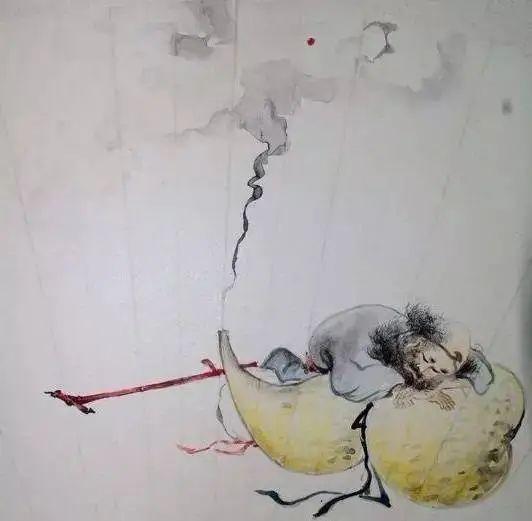
4. Hanging Gourd
The Book of the Later Han records that an old man sold medicine in the market, hanging a gourd at the market entrance. His medicine was effective, curing many ailments, which drew people’s attention. It was discovered that this miraculous old man would jump into the gourd after the market closed. In ancient times, medicine and pharmacy were not separated, and “Hanging Gourd” became a term for practicing medicine. Some practicing physicians also used gourds as signs to indicate their practice, and later generations referred to the achievements of physicians as “Hanging Gourd to Save the World”.
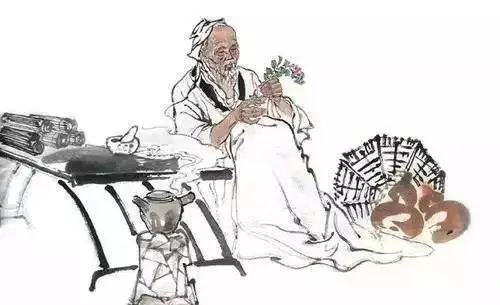
5. Apricot Forest
During the Three Kingdoms period, Dong Feng was a skilled physician with high moral standards. He treated patients without accepting thanks or gifts, only asking those he cured to plant apricot trees in front of his house as a memorial. Those who recovered from serious illnesses were to plant five trees, while those with lighter ailments were to plant one. Years later, a forest grew, laden with red apricots. He built a “Herb Warehouse” and told people that anyone who wanted apricots could exchange a container of grain for a container of apricots. The grain he received filled the warehouse, which he used to help the poor. People were very grateful to him and presented him with plaques inscribed with “Apricot Forest”, “Medical Forest”, “Fame in Apricot Forest”, and “Spring Warmth in Apricot Forest”. These accolades became elegant titles for physicians with high moral standards and superb medical skills.
6. Tiger Guarding Apricot Forest
According to legend, one day Dong Feng encountered an old tiger lying in the grass. Upon closer inspection, he saw that the tiger was not aggressive but was in pain, seemingly asking Dong Feng for help. Dong Feng carefully examined the tiger and said, “Come back here tomorrow at this time, and I will treat you.” The tiger nodded and left. The next day, Dong Feng wore two iron rings on his arms, asked the tiger to open its mouth, and used the rings to prevent the tiger from biting. He removed a bone from the tiger’s throat, curing its ailment. In gratitude, the tiger became a guardian of Dong Feng’s apricot forest. Today, the phrase “Tiger Guarding Apricot Forest” is used to praise physicians with superb medical skills like Dong Feng.
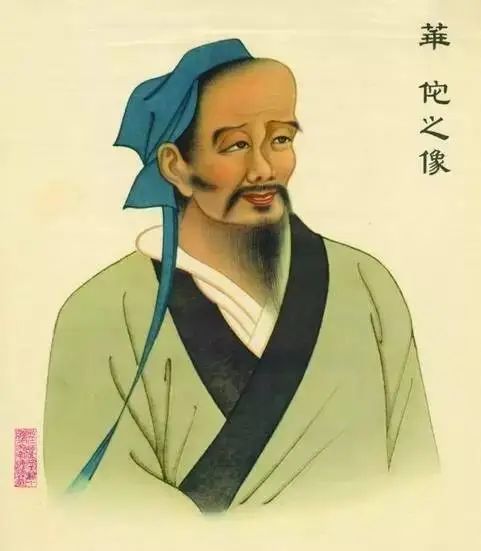
7. Reborn Hua Tuo
Hua Tuo once saw a funeral procession and noticed blood flowing from the coffin, resembling that of a living person. He rushed forward to provide treatment and ultimately saved a woman who had been falsely declared dead, earning him the title of “Divine Physician”. He was proficient in internal medicine, surgery, gynecology, pediatrics, and acupuncture. The Romance of the Three Kingdoms states that he could perform trepanation on Cao Cao to treat his headache. Later generations used the term “Reborn Hua Tuo” to praise physicians with exceptional medical skills.
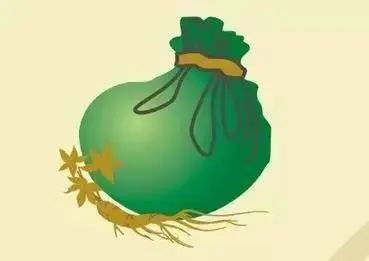
8. Green Bag
This refers to the bag that ancient physicians used to carry medical texts, later used to refer to medical skills. The Book of the Later Han records that a jailer would provide food and drink to Hua Tuo, who, grateful for the kindness, said, “If I die, it is not my fate, but I have a green bag that has not been passed on. If my two sons cannot continue my work, I will write a book for you to take.” When the jailer reached Jincheng, he took the book and hid it. Knowing he could not escape, Hua Tuo drank heavily and died. The jailer returned home and asked his wife for the book, to which she replied, “Even if you learn divine skills, you will ultimately die in prison, so I burned the bag.” Because Hua Tuo was renowned for his medical skills, the term “Green Bag” also became a synonym for medical expertise.
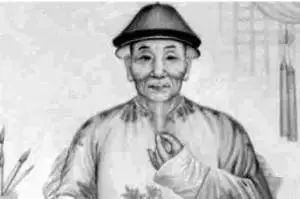
9. Great Physician of the Common People
Sun Simiao, known as the King of Medicine during the Tang Dynasty, was a model of high medical ethics. In his work Essential Prescriptions Worth a Thousand Gold, he wrote: “If someone comes seeking help for an illness, do not ask about their wealth or poverty, their friends or enemies, their intelligence or ignorance, treat them all equally as if they were your own family. Do not hesitate or worry about good or bad outcomes, and do not protect your own life. With deep compassion, do not avoid day or night, cold or heat, hunger or thirst, fatigue, and wholeheartedly rush to help, without any thought of personal gain; this is how one can become a great physician of the common people.” Later generations honor physicians with high moral standards as “Great Physicians of the Common People”.
10. Orange Well
The term “Orange Well” refers to the story of Su Dan, a Taoist from the Western Han Dynasty. Su Dan was extremely filial to his mother and, before becoming an immortal, warned her of an impending epidemic, advising her to soak orange leaves in well water to treat the illness. The following year, when the epidemic broke out, his mother used this method to cure countless patients. Later, people began to praise TCM with the phrase “Orange Well Spring Fragrance”.
11. Doctor
In ancient feudal states, there were three ranks below the monarch: ministers, doctors, and scholars, thus “doctor” became a general term for officials. After the Qin and Han dynasties, there were high-ranking officials such as the Grand Inspector and advisors like the Advising Doctor and the Central Doctor. During the Tang and Song dynasties, there were still positions like Grand Inspector and Advising Doctor, which were abolished in the Ming and Qing dynasties. After the Sui and Tang dynasties, the title “Doctor” became a designation for high-ranking officials. In the Qing dynasty, high-ranking civil officials were called “Doctor”, while military officials were called generals. During the reign of Emperor Huizong of the Song dynasty, the official ranks were revised, and a lower rank was established for medical officials, hence the term “Doctor” is still used to refer to physicians today.
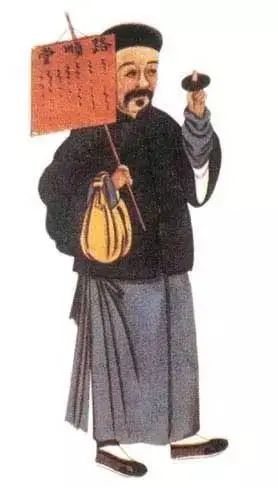
12. Lang Zhong
During the Warring States period, this referred to court attendants. From the Tang to the Qing dynasties, it became a title for high-ranking officials below the Minister and Deputy Minister, responsible for various affairs. For example, in the story of Jing Ke Assassinating the King of Qin: “The various Lang Zhong held weapons, all presented to the lower court.” This refers to court attendants. In the Biography of Zhang Heng, “The public vehicle was specially designated for the Lang Zhong,” indicating the title of an official managing the royal carriage. By the Song dynasty, physicians in the north were called “Doctors”, while in the south, they were respectfully referred to as “Lang Zhong”.
The ancient titles for TCM are rarely used or known today, but the superb medical skills and high moral standards of these medical masters have been passed down through generations, setting an example for future medical students, physicians, and TCM practitioners.
Source: Apricot Forest Academy
| ===== Previous Classics =====方剂-辛夷散 (Xinyi San, for treating allergic rhinitis, acute and chronic sinusitis, etc.) 方剂-茯苓杏仁甘草汤 (Fuling Xingren Gancao Tang) 方剂-四君子汤 (Si Junzi Tang) 中药-牡丹皮的功效与禁忌 (Effects and contraindications of Peony Root) 中药-鸡内金的功效与作用 (Effects and functions of Chicken Inner Gold) 中药-紫苑止咳平喘的药,功效及禁忌 (Effects and contraindications of Zi Yuan for cough relief) 中药-花椒的功效与禁忌 (Effects and contraindications of Sichuan Pepper) 中药-泽泻的功效与作用 (Effects and functions of Alisma) 男性做了结扎,和正常人有区别吗?对那方面有影响吗?答案来了 |
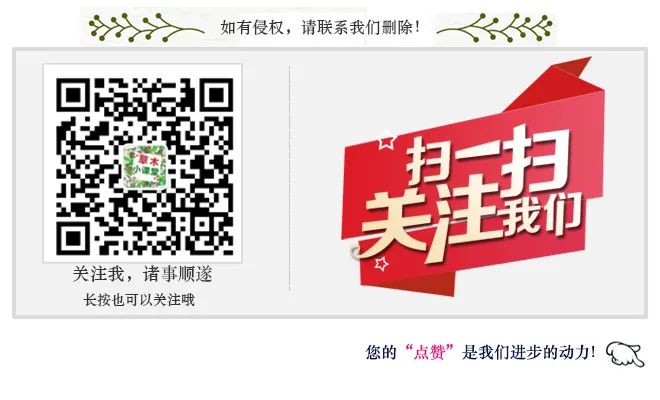
Note:Do not use medication without a doctor’s advice.

